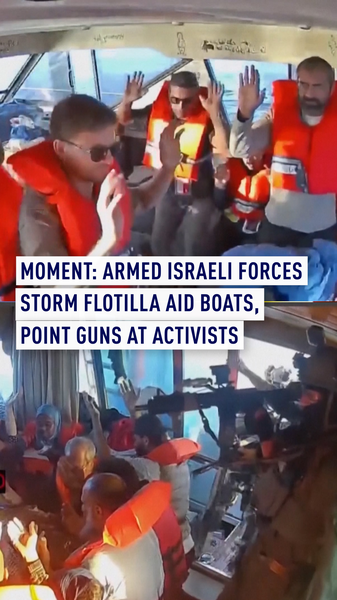In a dramatic escalation of the humanitarian crisis in the Palestinian enclave of Gaza, Israeli forces intercepted a flotilla of 39 boats on Thursday, preventing foreign activists and aid supplies from reaching the territory. Among those detained was Swedish climate campaigner Greta Thunberg, who appeared in video footage surrounded by soldiers on a deck.
Only one vessel from the convoy remains at sea, according to flotilla organizers. Governments with nationals on board voiced strong reactions. Türkiye’s foreign ministry condemned the operation as an "act of terror" endangering innocent civilians, while Italy’s Prime Minister Giorgia Meloni criticized the flotilla attempt, questioning its methods.
Live footage independently verified by broadcasters showed Israeli commandos boarding ships at night, outfitted with helmets and night-vision goggles. Activists huddled together in life vests with hands raised as soldiers secured control of the decks.
The interception has reignited global debates over aid access, maritime rights, and the Gaza blockade. Supporters of the mission argue that Gaza’s 2.3 million residents face severe shortages of food, medicine, and clean water under naval and land embargoes imposed since 2007.
Critics warn that activist-led convoys risk heightening tensions and endangering participants and coastal communities. With only one boat still en route, international observers are watching closely to see if it will succeed in delivering critical relief.
As world leaders respond and social media amplifies calls for humanitarian corridors, the Gaza aid flotilla saga underscores the complex interplay of activism, geopolitics, and human rights in today’s interconnected world.
Reference(s):
cgtn.com



